There is nothing scarier than that moment after you become a new parent and leave the hospital with your newborn.
You sit at home and worry about every single noise and movement they make, wondering if they are okay if they are comfy, and more importantly if they are healthy.
As an Amazon Associate I earn from qualifying purchases. The links below may be affiliate links. Please read my disclosure policy for more information.
So when your baby starts sneezing a lot it can be a cause for concern. When an adult sneezes, it often indicates they have a cold or are developing one.
So your first reaction might be to hearing your newborn sneeze might be to worry that your baby is getting ill.
What is causing my baby to sneeze?
Firstly you should rest assured that sneezing, along with coughing, yawning, and hiccuping are all very normal body reflexes, caused by your baby’s developing nervous system.
Your baby could be sneezing a lot because babies have smaller noses and therefore smaller nasal passages than adults.
This means they have to sneeze more often to clear their nasal passage.
Sneezing helps defend your baby from the millions of germs and bacteria they are introduced to as they go about in the world.
A sneeze becomes a reflex their tiny bodies use to expel germs away.
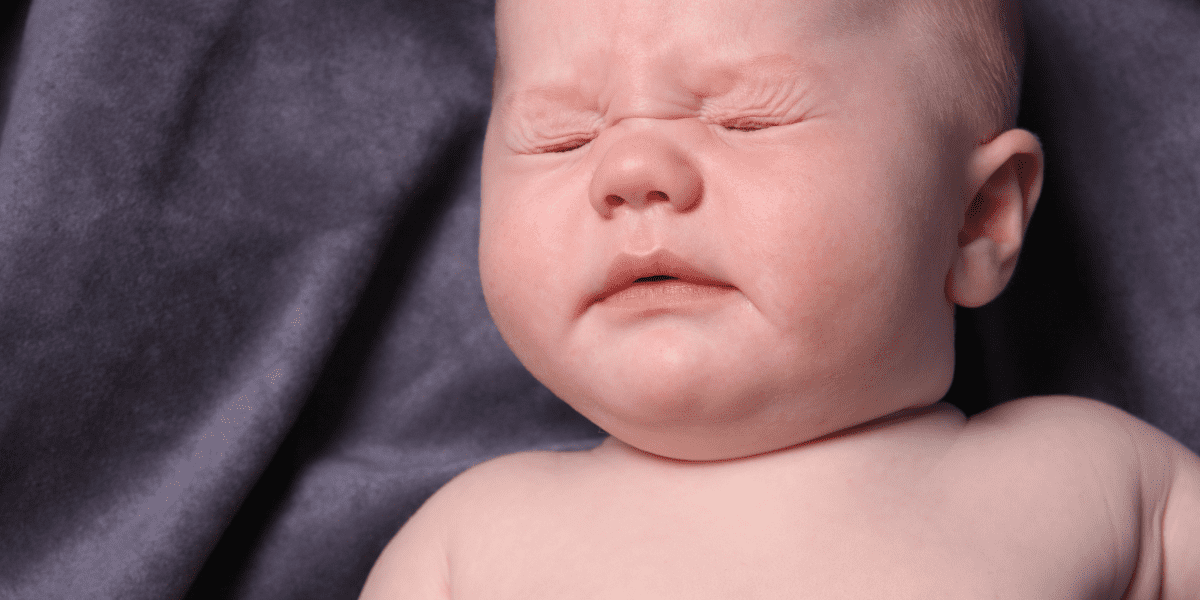
If your baby is breastfed you might find that one of their nostrils often becomes constricted and squashed against your breast whilst they nurse. A sneeze in this situation can help open that nostril up.
Sneezing doesn’t just stop germs from entering their system, it is also the body’s way of pushing out anything built up in the nasal passage.
In the case of newborns, this can often be milk or salvia. Babies quite often spit up their milk, they also may drink their regurgitated milk Which leads to milk trickling back into their noses.
This means they need to sneeze to clear it away.
In short, if you notice your baby sneezing and it is not accompanied by any cold, flu, or serious symptoms, then do not take this as a cause for concern.
A sneeze is simply a natural reflex designed to help fight off illness. It happens often as they adjust from breathing through their nose to breathing through their mouth.
After a few months, when they are fully able to breathe through their mouths they will not need to clear their nose as often and therefore will not sneeze quite as much.
But what if your baby is sneezing and there are other signs of illness?
Although it is completely normal for babies to sneeze, there are times when it can be a sign that something is wrong.
So let’s take a look at what these signs can be and what to do if they occur.
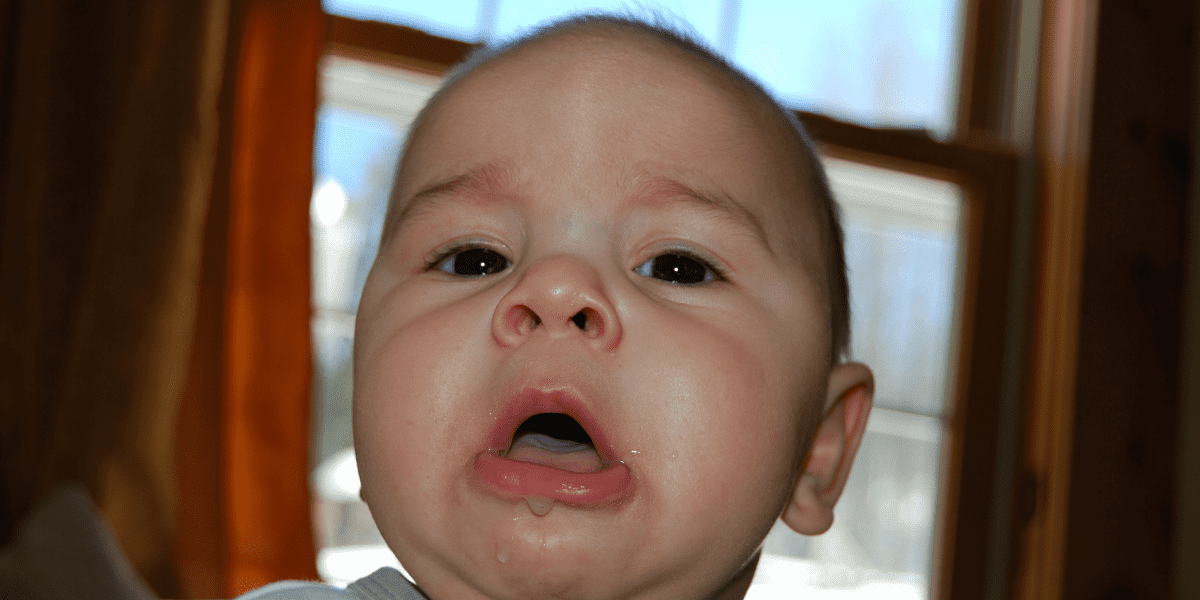
Neonatal Abstinence Syndrome (NAS)
Neonatal Abstinence Syndrome (NAS) is a condition that affects babies who are exposed to opiates in the womb.
The substances that commonly cause Neonatal Abstinence Syndrome in a baby are Methadone, Alcohol, and Heroin. It occurs because the baby is essentially suffering a withdrawal from the drug the mother frequently used during the pregnancy.
A common withdrawal sign for Heroin is excessive sneezing.
It is labeled as excessive if the baby is sneezing 3 to 4 times in a row within a period of 30 minutes.
NAS is measured using a scoring system used to determine how severe the baby’s withdrawal from the drug is.
Treatment is then decided based on the outcome of this assessment.
If you think your baby is suffering from Neonatal Abstinence Syndrome, contact your doctor right away.
Hay Fever
More formerly known as Allergic Rhinitis can cause babies to sneeze a lot. Hayfever can be triggered by pollen, dust mites, grass, and even mold.
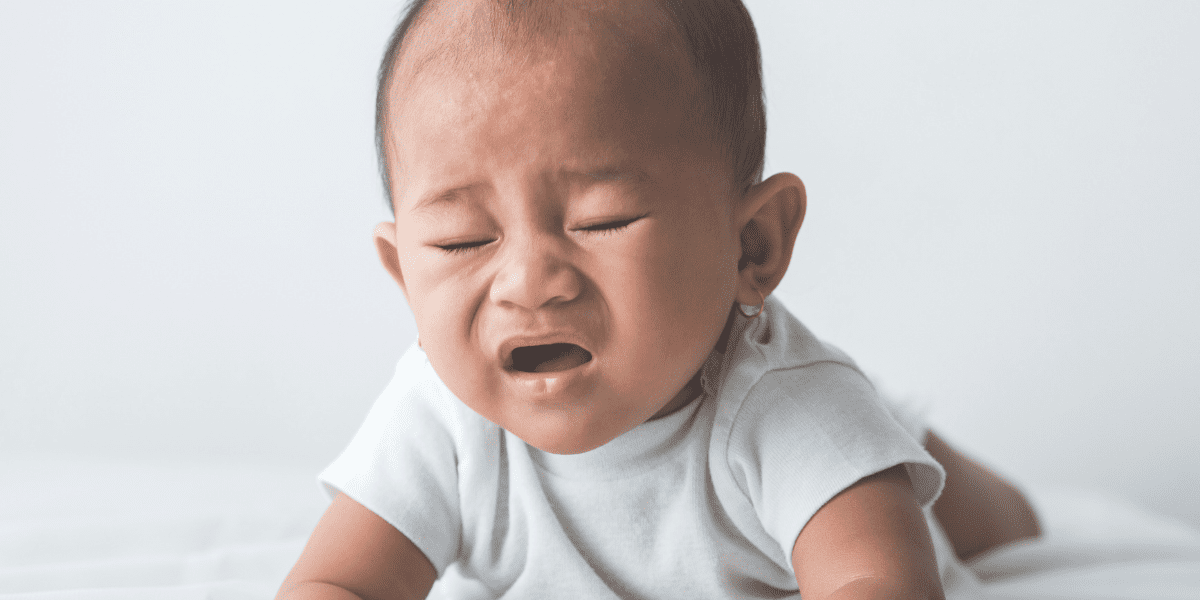
Another allergen trigger in the home could be pet dander.
Pet dander is made up of microscopic bits of skin that are shed from animals that have feathers or fur.
If you find that your baby is sneezing a lot when outside or when around your family pet then it is possible they are having an allergic reaction.
As well as frequent sneezing a reaction could present itself in the form of watery eyes, an itchy or runny nose, and even ear pain.
An effective trick for battling hayfever or a pet allergy is to put vaseline around your baby’s nostrils. This will trap any pollen or dander trying to enter your baby’s nose.
Speak to your doctor about which over-the-counter antihistamines are safe to administer to babies suffering from allergies.
Respiratory tract infection
Just like adults, sneezing can be a sign in babies that they are suffering from a cold. Most commonly an upper respiratory tract infection, which is an infection in the nose, throat, and/or sinuses.
Babies can frequently catch upper respiratory tract infections because they have immature immune systems that haven’t been exposed to many germs.
By the time babies start attending nursery, it is predicted they will catch around 6 – 8 viral infections a year.
If you think your baby might be suffering from this type of infection they will most likely have one or two of the following symptoms:
- Cough
- Fatigue
- A temperature
- Runny nose
- Sore throat or earache
Most upper respiratory tract infections can be treated without needing to see a doctor.
If your baby appears to be congested and it doesn’t seem to be clearing when they do sneeze there are a couple of things you can do to help unblock their nose.
You can use saline drops to flush out any bad nasal fluid. Using a bulb syringe, fill it with a couple of drops of an over-the-counter baby saline solution and squirt it into your baby’s nose.
This will help loosen the mucus.
You should increase their feeds. Make sure your baby takes in fluid often. It is incredibly important that your baby stays hydrated whilst they are fighting off an illness.
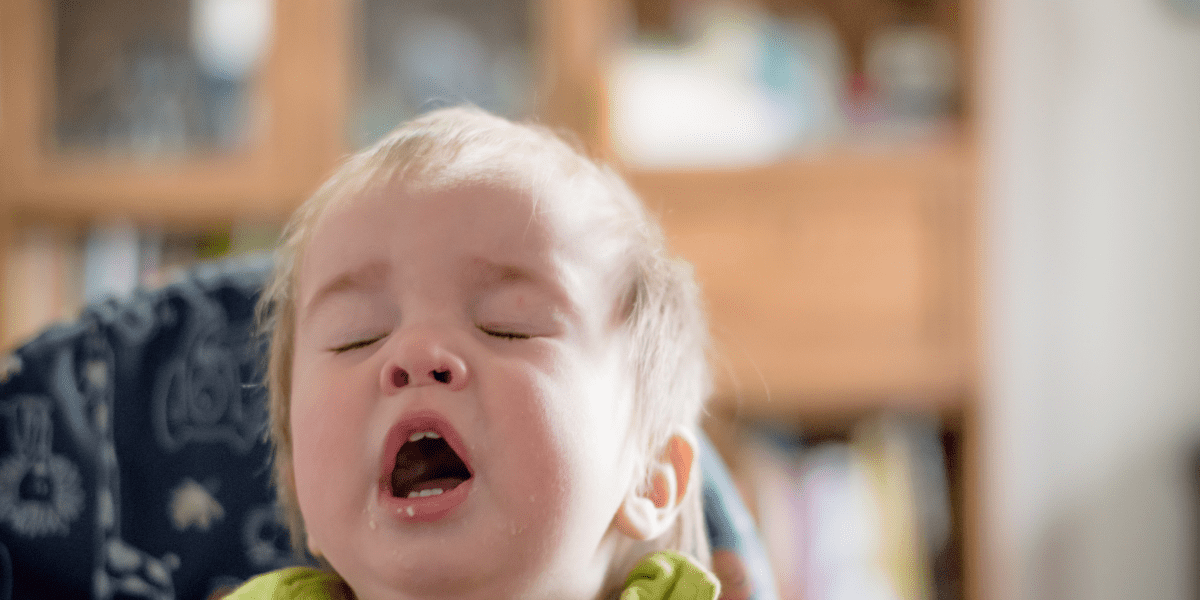
A good way to measure how hydrated your baby is is through their nappies. A well-hydrated baby will have a wet nappy every 6 – 7 hours.
The urine should also appear to be a pale yellow, not a dark brown color.
You can set up a humidifier in your baby’s room. A steam humidifier adds moisture to the air which will help loosen up the mucus in their nose.
For an added benefit try to raise the head of their bed/ Moses basket, the incline will help clear their nasal passages.
However respiratory infections can become dangerous quite quickly if your baby struggles to fight them off.
You should call emergency services immediately if you notice the following:
- Trouble breathing – A clear indication that your baby is struggling to breathe is if the skin on their rib cage appears to suck underneath with each breath. Similarly if the skin at the base of their throat visibly sucks in with each breath. Your baby’s breathing will also sound raspy and they may make a grunting sound.
- Pale or blue – If your baby suddenly appears to become very pale or has blue lips and a blue tongue.
- High Temperature – Babies are not able to regulate their own body temperature. If your baby develops a temperature over 40 degrees celsius (104 fahrenheit) they are at risk of having febrile seizures. These seizures last just under 5 minutes in which time your baby would lose consciousness, go stiff and could foam at the mouth. During this seizure, place your baby in the recovery position and don’t try to put medicines into their mouth. There is a risk they will swallow their tongue whilst fitting. You should also try to time how long the seizures last and tell the responding medical officers if it lasts longer than 5 minutes. A febrile seizure happens only once during your baby’s infection.
- Trouble waking – If your baby seems overly sleepy and can not stay awake. Or alternatively if they are asleep and will not wake when you move them.
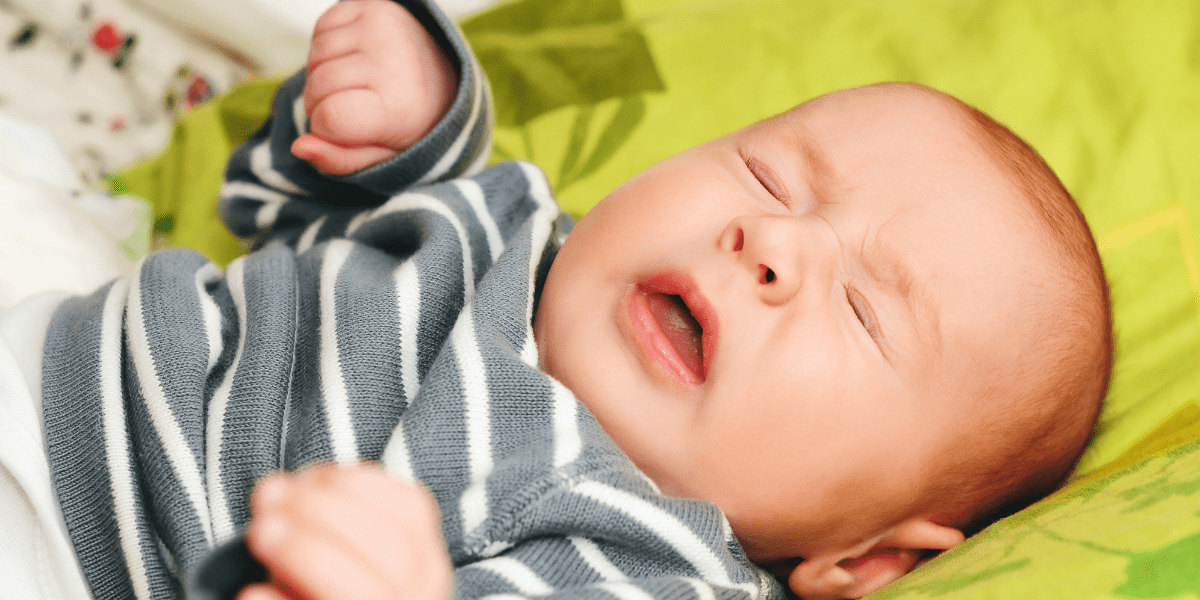
Newborns are full of strange little noises. Noises that jerk their tiny bodies such as sneezing, hiccuping, and yawning.
It is natural for a new parent to be worried about each little sound. But frequent sneezing should not be a cause for concern.
Sneezing is a natural reflex that babies use as a way to fight off oncoming germs. They also sneeze as a quick way to open up their airways whilst breastfeeding. Or to clear their airways from a build-up of milk.
There are instances where sneezing can be a sign that something more serious is going on such as a developing infection or allergy, but these can be treated easily.
When it comes to parenting there is no stupid question. You will know your baby better than anyone else, so trust your instincts.
If you feel like something isn’t right do not hesitate to reach out to your doctor. Even if it does turn out to just be hiccups your doctor will be able to reassure you and perhaps even offer ways to stop your newborn’s hiccups.
